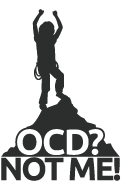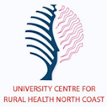Our featured service this month is OCD? Not Me!, an online program for young people (12-18yrs) with OCD.
About OCD? Not Me!

OCD? Not Me! is a free online, self-guided treatment program developed by researchers at Curtin University for young people aged 12 to 18 years with Obsessive Compulsive Disorder (OCD). The program is based on CBT – exposure response prevention, involving eight stages designed to be undertaken in eight weeks. Over the course of the program young people are provided with information, tips, activities, and support to help them overcome the symptoms of OCD.
OCD? Not Me! also provides weekly information and tips for parents and caregivers to help manage their child’s OCD and support them through the program.
Who is OCD? Not Me! for?
OCD? Not Me! is designed to support young people aged 12 to 18 years old with OCD.
How can Health Practitioners use OCD? Not Me!
Australian Health Professionals can access OCD? Not Me! for free to use with their clients. Health Professionals who register to use the program can access a downloadable therapist manual, training videos demonstrating how the OCD? Not Me! program works and tips on how to use the program with clients.
Health Professionals looking to register for OCD? Not Me! will need to provide brief information about their background, including their professional regulatory body registration number and email address.
Is there a cost to use OCD? Not Me!
OCD? Not Me! is available free of charge in Australia.
How to access OCD? Not Me!
OCD? Not Me! can be accessed online at https://www.ocdnotme.com.au/.
To participate in the program young people must register with consent from a parent or caregiver and provide their email address, as well as nominate a password before receiving a participant ID number. Before they can start the program, users must complete a brief screening assessment to determine their suitability.
OCD? Not Me! Research and Evaluation
OCD? Not Me! has been evaluated and found to hold promise as a way of increasing access to treatment for young people with OCD.
Read the full article here: https://mental.jmir.org/2016/3/e29/





